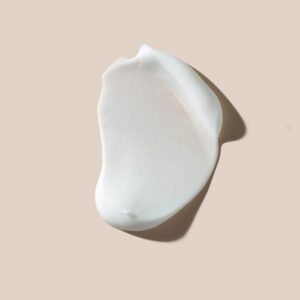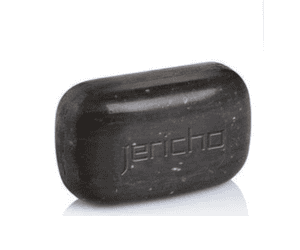Discover the benefits of Dead Sea mud for your hair health and learn tips for incorporating this natural remedy into your regular routine.
The Dead Sea, a unique and captivating natural wonder, has intrigued humanity for centuries with its unusually high salt and mineral content. This extraordinary body of water, bordered by Jordan, Israel, and the West Bank, is famous for its buoyant waters and its therapeutic qualities.
Among these, the benefits of Dead Sea products for hair care have recently gained attention in the beauty world. This blog post aims to explore the revolutionizing uses of Dead Sea mud for your hair. We will explain that through a blend of historical context, practical advice, and modern applications.
Understanding Dead Sea Mud
Dead Sea mud is far from ordinary; it’s a potent mix of minerals and elements from one of the world’s saltiest bodies of water. Rich in magnesium, sodium, potassium, and other minerals, it has long been revered for its therapeutic properties. The historical use of Dead Sea mud dates all the way back to ancient civilizations. There, it was a staple in various beauty and health rituals.
What sets this apart from regular clay is its mineral concentration, which is not found in other natural mud. These minerals have various health benefits and make this product amazing for skin and hair care. Its uniqueness lies in its composition and historical significance, offering benefits that extend beyond the superficial to encompass holistic wellness.
Hair Health and Dead Sea Mud
The benefits of hair are diverse and significant. This mineral rich mud offers deep cleansing abilities, effectively removing dirt, impurities, and excess oils from the scalp and hair while maintaining the essential natural oils. It is packed with minerals known to soothe various scalp conditions such as dandruff, psoriasis, and eczema. This can lead to a healthier scalp environment, essential for healthy hair growth.
There are also suggestions that it can stimulate follicles, potentially aiding hair growth and reducing hair loss. These benefits make Dead Sea mud for your hair a compelling addition to any routine, especially for those looking for natural remedies to common issues and conditions.
Photo by Element5 Digital on Unsplash
Moisturizing and Strengthening Benefits
Utilizing the Dead Sea mud can provide significant moisturizing and strengthening benefits. Its unique composition helps maintain an ideal moisture balance, which is crucial for preventing dryness and brittleness. This hydration aspect is especially beneficial for those with dry or damaged hair.
The high mineral content contributes to the strengthening of hair strands. These minerals, particularly calcium and magnesium, play a key role in fortifying the shaft, thereby reducing breakage. Numerous individuals have reported a noticeable improvement in their overall texture, strength, and appearance after incorporating Dead Sea mud into their care routine. This natural treatment not only improves the physical condition of the hair but also enhances its aesthetic appeal, making it look and feel healthier.
Photo by Sherise Van Dyk on Unsplash
How to Use Dead Sea Mud for Your Hair
Incorporating Dead Sea mud into your regimen is both easy and rewarding. To start, you can create your mask, which can be purchased in its raw form from various beauty stores. You might mix a mask with essential oils or other natural ingredients like honey for added benefits when preparing it.
Applying the mask is straightforward simply spread it evenly across your scalp, leaving it on for a period before thoroughly rinsing it off. This process helps maximize the mud’s contact with your scalp and hair, allowing the minerals to impart their benefits effectively. The recommended frequency of use varies depending on hair type and condition. However, using the mask once a week can generally yield noticeable results. Regular application of Dead Sea mud can enhance hair texture, strength, and overall health.
Adapting Your Routine to Life Changes
Our hair needs can evolve as we navigate through various life changes, like traveling or relocating to a new city. Moving, especially to a different climate, can significantly affect your hair health. For instance, if you’re relocating to a place with a dryer climate, your hair might need extra moisture.
This is where the Dead Sea mud mask can be a lifesaver. Speaking of moving, ensuring your relocation is smooth and doesn’t mess with your hair routine is crucial. This is where resources like Verified Movers Reviews come in handy. They offer a comprehensive database to help you choose the right moving company, ensuring your belongings, including your treasured hair care products, arrive safely at your new home.
Precautions and Considerations
While Dead Sea mud has numerous benefits, it’s important to approach its use with some precautions. First and foremost, if you have sensitive skin or are prone to allergic reactions, it’s advisable to conduct a patch test before applying the mud to your scalp. This helps in ensuring that you don’t have any adverse reactions.
Additionally, it suits most hair types, but its effects can vary. It’s important to consider your specific needs and conditions when using this product. For instance, those with extremely dry hair might need to follow up with a deep conditioner post-treatment. When purchasing Dead Sea mud, opt for a high quality, authentic product. This ensures you get the full benefits without any added chemicals or impurities.
Photo by Giorgio Trovato on Unsplash
Conclusion
Exploring the benefits of Dead Sea mud reveals a natural, effective way to enhance your hair health and beauty. This unique, mineral rich substance offers many benefits, from deep cleansing and scalp soothing to moisturizing and strengthening. By incorporating this ancient remedy into your routine, you take a step towards a more natural approach to beauty. As we continue to uncover the secrets of Dead Sea mud for your hair, its mud stands out as a testament to the power of nature in enhancing our health and well being.








